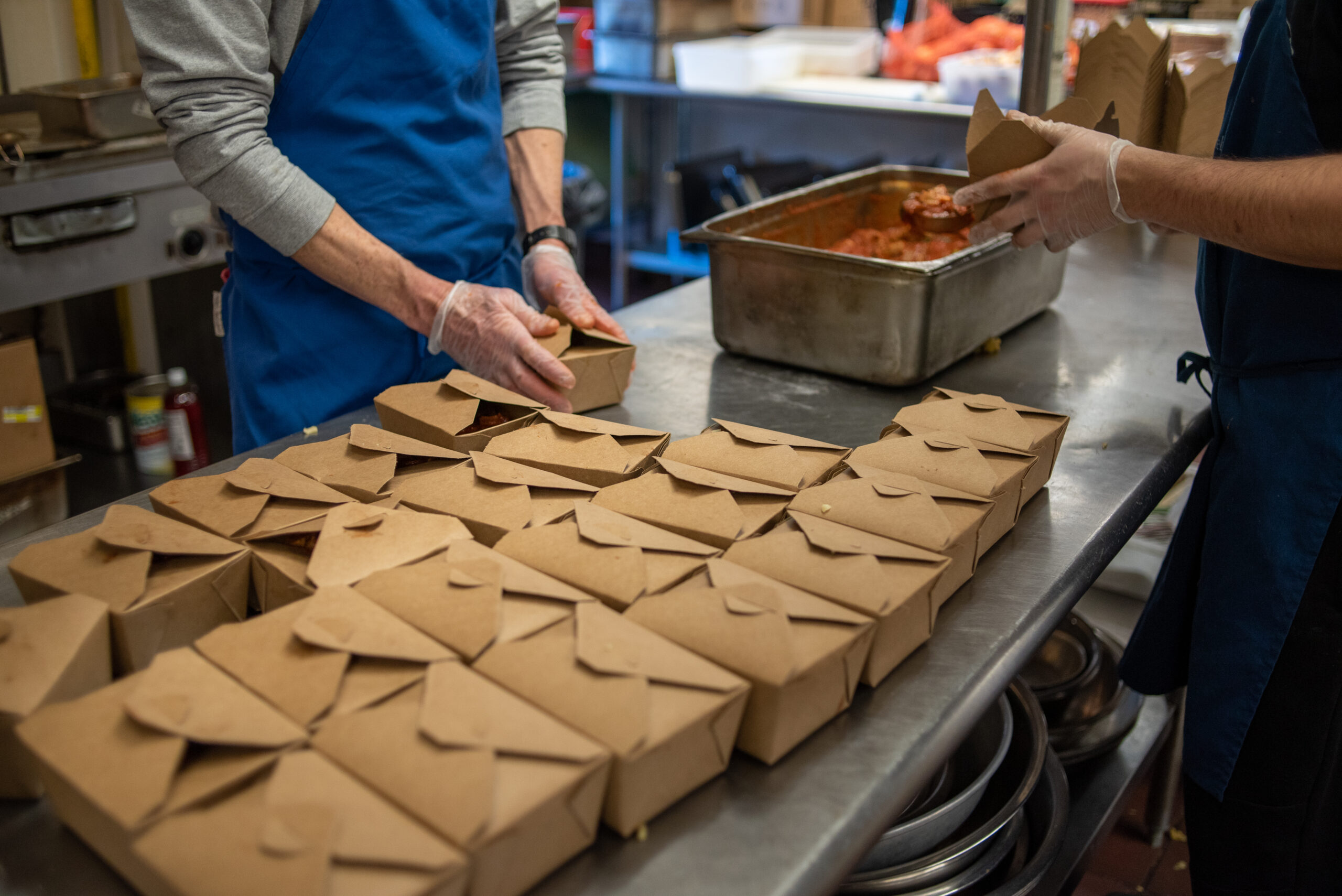Food insecurity is a critical issue facing Maine. According to Feeding America, Maine has a higher-than-average food insecurity rate of 12.3%. The national average is 10.5%. One‐in-eight Maine people and one‐in‐five Maine children are hungry or at risk for hunger. Maine’s Roadmap to End Hunger initiative estimates the total number of people experiencing food insecurity in Maine is roughly 153,000. Clearly, food insecurity and hunger are dire issues in Maine, and creative, collective, and comprehensive solutions will be needed to address it.
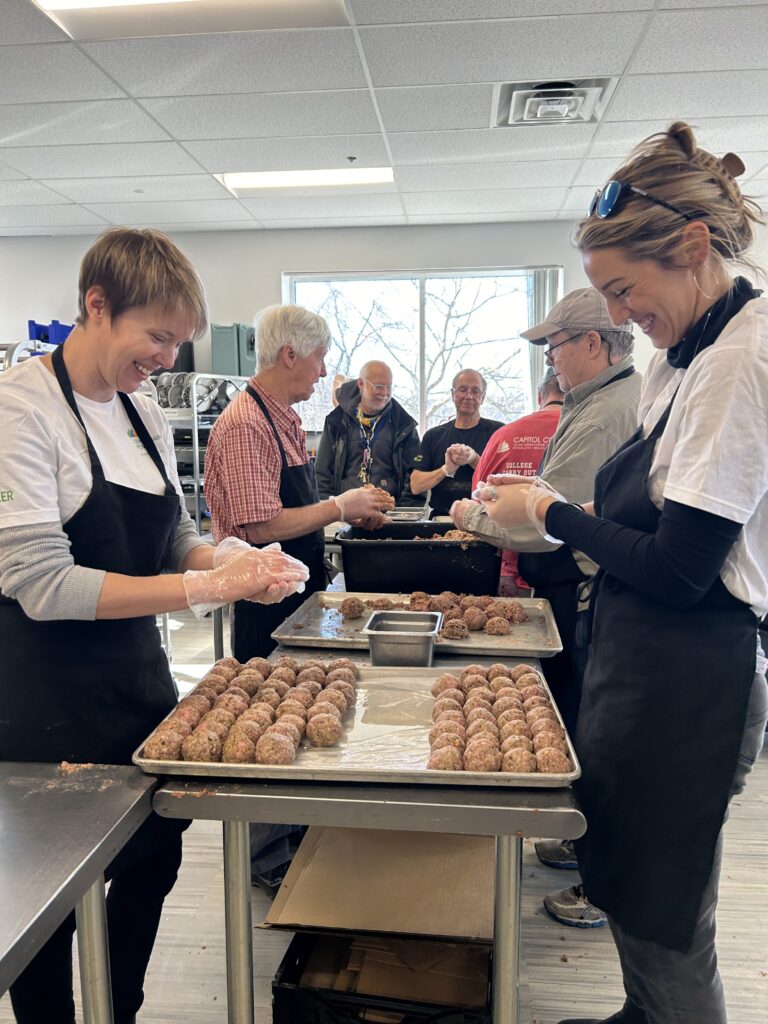
Preble Street’s Food Security Hub (FSH) represents a creative solution for addressing hunger in Maine, and will build collective support and partnership of multiple organizations and agencies. The FSH provides access to high-quality, culturally appropriate food that improves the health and wellbeing of approximately 5,000 people struggling with food insecurity across Maine. With one main location, multiple organizations can work together on food access and justice in creative ways under the same roof. This cohesive effort will build economies of scale and awareness of and support for anti-hunger efforts, including culturally appropriate foods—a vital component of combating hunger and a sustainable food system in Maine.
Watch the video above to hear from Preble Street Executive Director, Mark Swann, on the vision for the Food Security Hub!
After considerable planning and fundraising, construction to bring this vision to end hunger in Maine is now underway! Construction is starting, thanks to funding from the Maine CDC, on the addition of a loading dock.
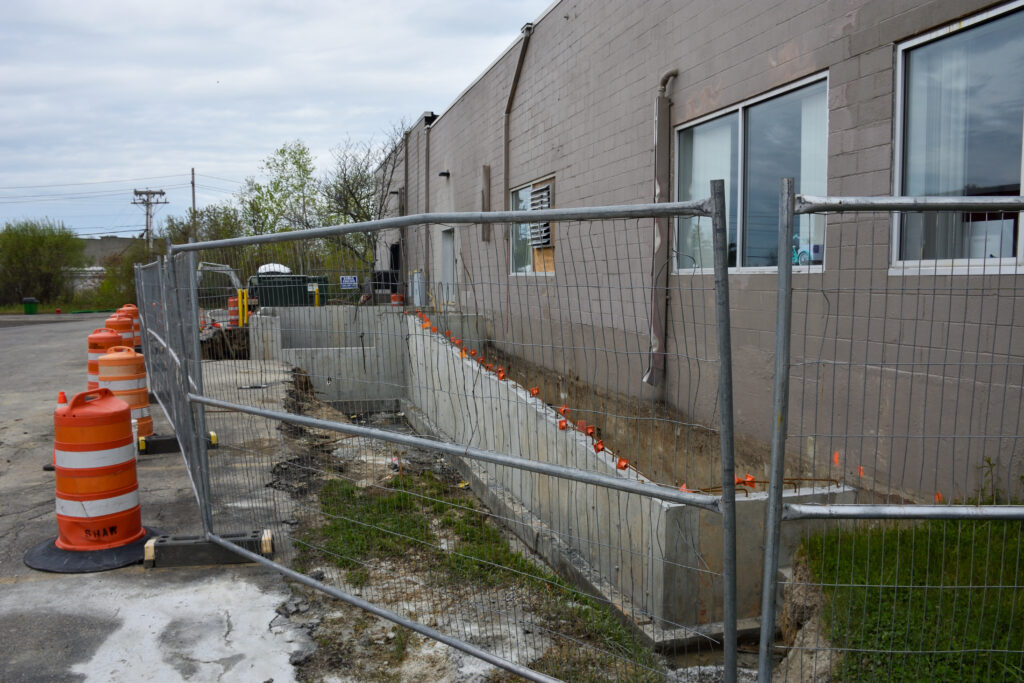
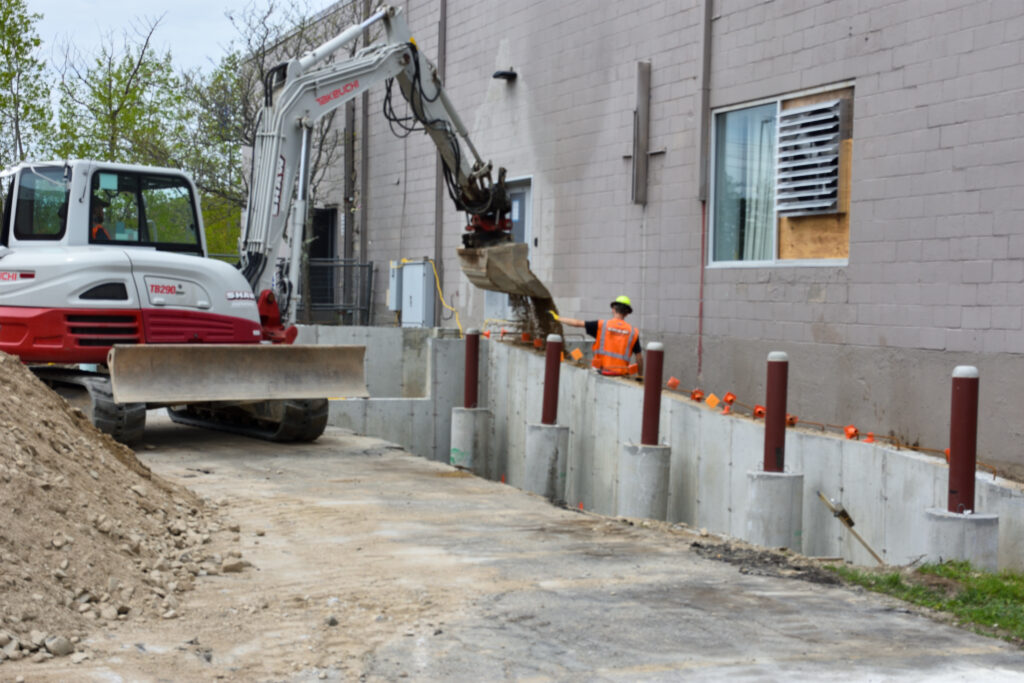
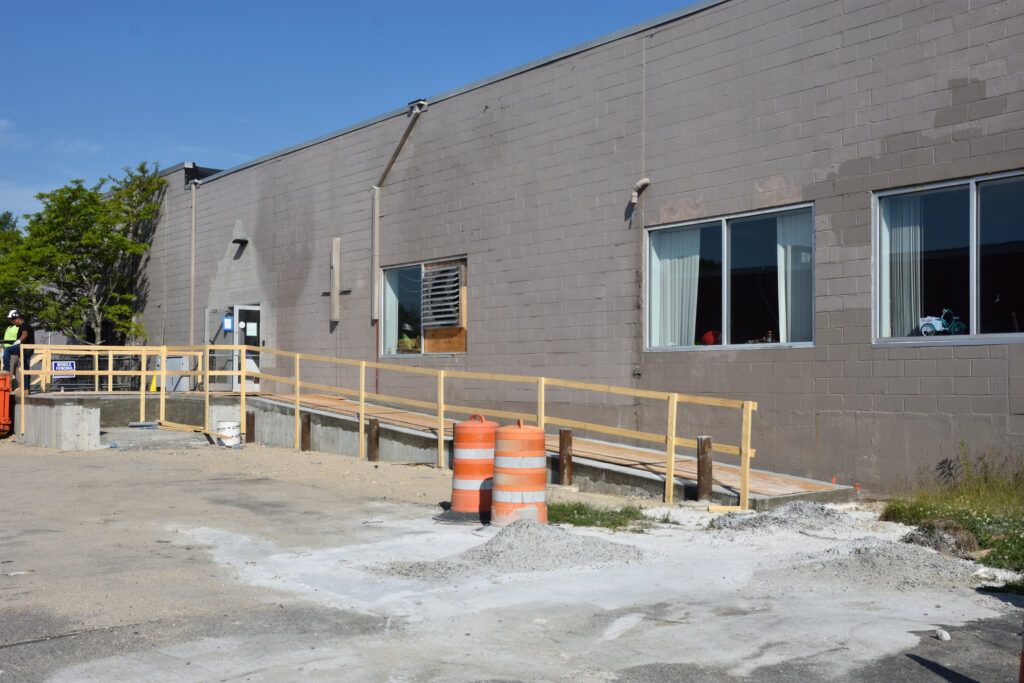
“We are building the Preble Street Food Security Hub so that in five, ten, or even 20 years from the now, we will have the capacity and flexibility to respond to emerging needs. We don’t know what changes we’ll see in that time frame, but we know that we need to be able to serve many different populations, to work with many different partners, and to have the infrastructure ready to meet the needs in case of another pandemic, an economic crisis, or a natural disaster.”
Mark Swann, Executive Director, Preble Street
Looking ahead, once the Food Security Hub is complete, Preble Street will be able to make up to 10,000 meals per day and respond to changing needs. The FSH will also have the processing and freezer capacity to store up to 50,000 frozen, prepared meals for future emergencies. Those meals, in addition to the 10,000 meals that the Food Security Hub will be able to produce daily, will be a critical component of Maine’s emergency preparedness operational plans.
Today, the Preble Street Food Security Hub is already increasing food security in Maine, creating strong and effective community partnerships, and bolstering local agriculture and environmental sustainability. But we are thinking big and have a vision to combat food insecurity through partnerships and collaboration throughout Maine — bringing more meals and grocery boxes to people in need.
Volunteer at the Food Security Hub!
Read more...
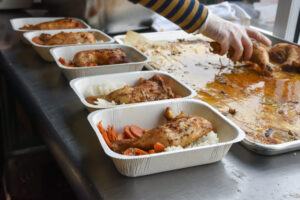
The Preble Street response to the SNAP crisis
Donate here to help Preble Street provide emergency food to people in need in Maine! Volunteer with Preble Street to help produce up to 10,000 meals a day. Update: December 3, 2025 While last month’s SNAP benefit emergency was resolved, the ongoing SNAP crisis is not. The massive cuts to SNAP and Medicaid made in this

Staff highlight: Jacob Speakman – Creativity and confidence in the kitchen
Preble Street staff are #CompassionInAction, and we want you to get to know them! This month we’re introducing you to Jacob Speakman, Sous Chef at Preble Street Hope House Name, title, and program: Jacob Speakman, Sous Chef, Preble Street Hope House How long have you worked in your program? I started working in the Hope House Kitchen in
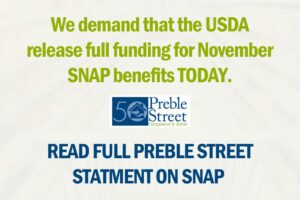
Preble Street Statement on SNAP
Update: November 10, 2025 We’re thankful to announce that full SNAP benefits have been issued for 97% of Maine recipients! A small percentage of households, mostly those who applied for SNAP benefits after November 2, have received reduced benefit amounts for this month. Many thanks to all who advocated for this, including Maine’s Governor, Attorney
